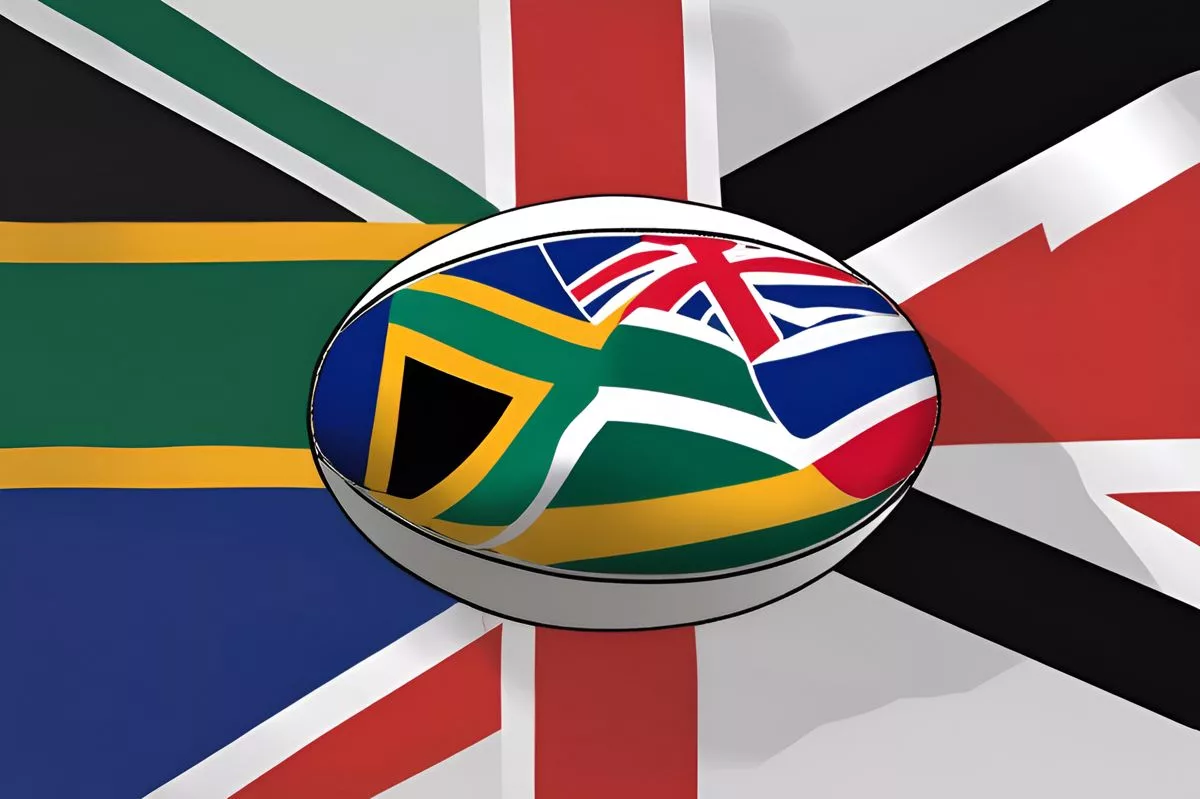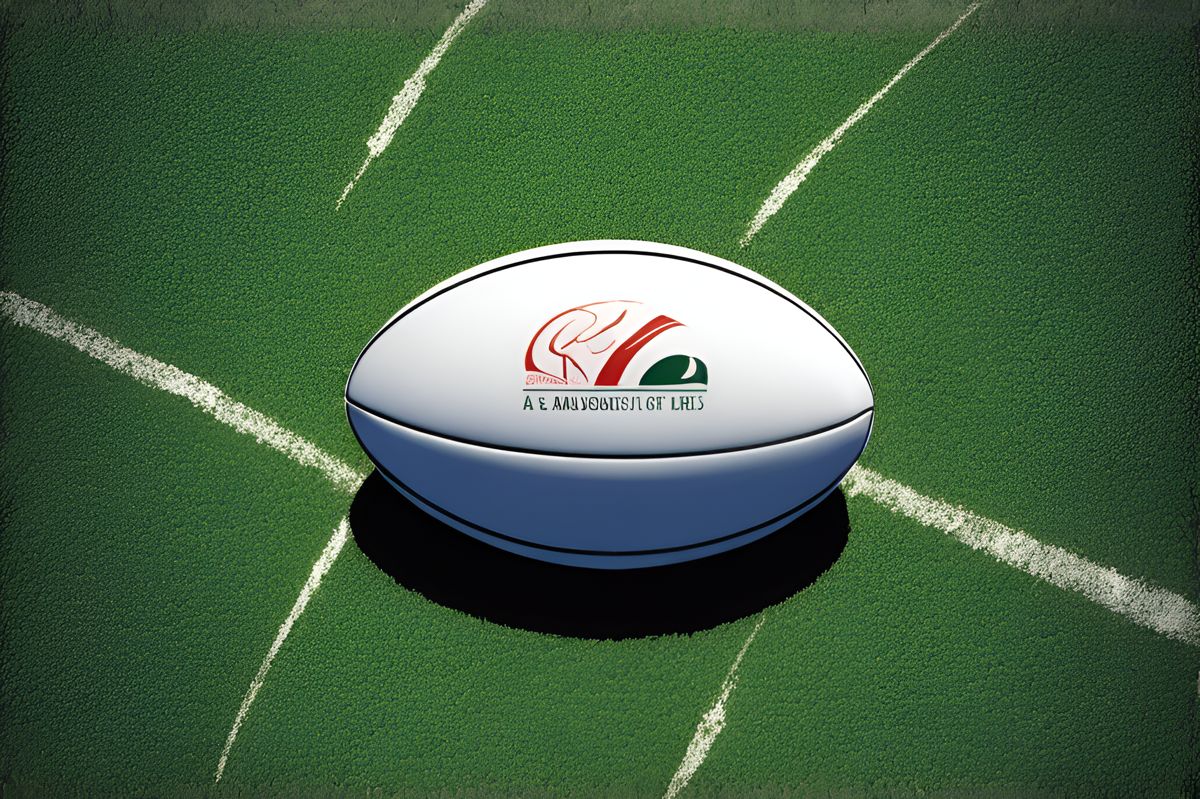England’s rugby strategy has come under scrutiny after they recruited Felix Jones, the South African Springboks’ defensive mastermind. Rugby legends Schalk Burger and Jean de Villiers have expressed skepticism about England imitating South Africa’s defensive style, as weaknesses were exposed in the Six Nations opener against Italy. Both former players question the logic behind employing Jones, who is primarily recognised for his offensive strategy, in a defensive role for England.
Why is England imitating South Africa’s defensive style in rugby?
England’s recent recruitment of Felix Jones, the Springboks’ defensive mastermind, has raised questions as to why they are trying to mimic South Africa’s defensive style. Rugby legends Schalk Burger and Jean de Villiers have expressed skepticism about this tactic, as seen in the recent Six Nations opener against Italy where weaknesses in England’s defensive system were exposed. The logic behind Jones, primarily recognised for his offensive strategy, being employed for a defensive role remains enigmatic.
A New Play in Rugby Strategy
In the complex and ever-evolving world of rugby, legendary South African Springboks icons, Schalk Burger and Jean de Villiers, are keenly analysing unfolding events with a blend of surprise and confusion. Their puzzlement stems from England’s attempt to mimic the South African team’s defensive mechanism, a strategic move seen in the recent Six Nations opener against Italy.
Like any other sport, rugby is a convoluted tapestry of strategic choices and tactical manoeuvres. England’s recent recruitment of Felix Jones, the Springboks’ defensive mastermind, as a member of their coaching team, is unquestionably intended to bolster their own defensive strategies. However, in a recent World Rugby’s Boks Office session, Burger and De Villiers, while chatting with former Bok Hanyani Shimange, expressed skepticism about this tactical transformation.
The intriguing aspect here isn’t merely England’s strategic shift but a deeper, more confounding story. In the preceding season, England demonstrated commendable defensive expertise, supplemented by a powerful kicking game at the World Cup. The addition of Jones, renowned for his contribution to the Springbok offensive from 2018 to 2023, further boosted the English ranks.
The South African Perspective
Burger’s respect for Jones is clear. He lauds Jones’ praiseworthy dedication and his mastery in offensive coaching. However, seeing him on the screen as a defensive coach, trying to mirror the South African defensive style, sparked a sense of perplexity in the former Springbok player.
One event that underscored their reservations was the Six Nations match against Italy. In a maze of defensive alignments, Tommaso Allan’s try revealed the weaknesses of England’s adaptation of South Africa’s defensive scheme. Even with five players on the blind and three at the ruck, a single second pass managed to sidestep twelve English defenders, resulting in a four-on-one with Elliot Daly. Such examples emphasise the necessity for further refinement in England’s defensive system.
Questions and Confusion
Echoing Burger’s sentiments, De Villiers, another notable ex-Springbok player, voiced his own mystery regarding England’s choice. The logic behind employing Felix Jones, a man primarily recognised for his offensive strategy, for a defensive role remains enigmatic to De Villiers. He continues to question the foundation of such a decision – was it based on Jones’ achievements at Munster, or was it merely a strategic gamble?
Rugby is a dynamic world, with teams consistently revamping and modifying their strategies in the quest for victory. However, England’s decision to imitate the South African defensive style, despite possessing a different set of player abilities and tactical strengths, remains a puzzling choice. This has been underscored by two of rugby’s esteemed figures, Schalk Burger and Jean de Villiers. As this narrative continues to unfold, both rugby enthusiasts and experts will be keeping a close eye on how this strategic shift impacts England’s future performances.
Who is Felix Jones and why is he being recruited by England’s rugby team?
Felix Jones is a South African Springbok’s defensive mastermind who has recently been recruited by England’s rugby team. He is primarily recognized for his offensive strategy, but England hopes that he can help improve their defensive game.
Why are rugby legends Schalk Burger and Jean de Villiers skeptical of England imitating South Africa’s defensive style?
Schalk Burger and Jean de Villiers are skeptical of England imitating South Africa’s defensive style because they believe that England possesses a different set of player abilities and tactical strengths. They also question the logic behind employing Jones, who is primarily recognized for his offensive strategy, in a defensive role for England.
What weaknesses in England’s defensive system were exposed in the Six Nations opener against Italy?
In the Six Nations opener against Italy, Tommaso Allan’s try revealed the weaknesses of England’s adaptation of South Africa’s defensive scheme. Even with five players on the blind and three at the ruck, a single second pass managed to sidestep twelve English defenders, resulting in a four-on-one with Elliot Daly.
What is the South African perspective on England’s rugby strategy?
The South African perspective on England’s rugby strategy is one of confusion and skepticism. Legendary South African Springboks icons, Schalk Burger and Jean de Villiers, are keenly analyzing unfolding events with a blend of surprise and confusion. They are puzzled by England’s attempt to mimic the South African team’s defensive mechanism.
What is the intriguing aspect of England’s strategic shift?
The intriguing aspect of England’s strategic shift is not merely their attempt to mimic the South African team’s defensive mechanism. It is a deeper, more confounding story that has left rugby enthusiasts and experts questioning the foundation of such a decision – was it based on Jones’ achievements at Munster, or was it merely a strategic gamble?
What impact will England’s strategic shift have on their future performances?
As this narrative continues to unfold, both rugby enthusiasts and experts will be keeping a close eye on how this strategic shift impacts England’s future performances. It remains to be seen whether imitating the South African defensive style will ultimately prove successful for England’s rugby team.












